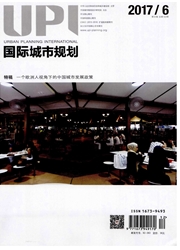

 中文摘要:
中文摘要:
本文从“领域化”的视角入手,以珠三角为例,解析转型期中国的郊区化及其社会空闻重构机制,提出郊区社会空间转型的三种状态:同化、融合、适应,展现出乡城转型进程的复杂性与可能性。珠三角郊区的典型空间案例就是这样一个复杂、多元、差异化的转型机制。在此基础上,本文对中国郊区转型的本质进行解析,强调创业精神的兴起是其内在基础,并将创业精神界定为兼具创业、奋斗与企业家气质的个人或群体精神,以活力、创新和担当风险为特征,强调其正面意义。同时,“领域化”进程与创业精神的兴起存在辩证互动关系,郊区化激发创业精神。总之,对精神价值的强调对于认识中国郊区转型意义重大,这对发展中地区和转型经济具有借鉴意义。
 英文摘要:
英文摘要:
This study examines recent transformation of the suburbia in Pearl River Delta, China. With the perspective of territorialization, it asserts that there are three types of sociospatial reconfiguration, namely, assimilation, integration, and adaptation, such that it highlights the complexity of suburbia transformation in post-reform China. With several typical cases such as the south suburb of Guangzhou, Luogang New City, and transitional suburban villages, I interrogate a diverse landscape in terms of the transformation of Cbina's suburbia. Moreover, I argue that the suburbanization of China is attributed to the rise of entrepreneurship, so that suburban communities or authorities retort to such efforts as local entrepreneurialism, entrepreneurial state, and resource mining feature by bricolage, so to take the risk of market, creation, as well as (re)territorialization. Positively, entrepreneurship provides a significant basis for the recent rise of suburbia in Pearl River Delta, which brings about a number of models including both top-down and bottom-up struggles. As such, we highlight the significance of entrepreneurship and its relation with (re) territorialization, particularly to and for such regions as developing economy, transitional economy, etc.
 同期刊论文项目
同期刊论文项目
 同项目期刊论文
同项目期刊论文
 期刊信息
期刊信息
